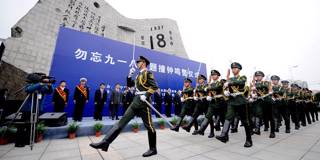For China, the Manchurian crisis of 1931 – and the subsequent 14-year Japanese occupation – remains a touchstone for national remembrance. And yet it seems to inspire little reflection, let alone influence China's approach to today’s geopolitical challenges.
OXFORD – Ninety years ago, on September 18, 1931, a junior Japanese military officer detonated an explosive that had been carefully laid by a Japanese-owned railroad near the northeastern Chinese city of Shenyang (then known in the West as Mukden). The blast did little damage, but that wasn’t the point. The Japanese blamed Chinese soldiers for the explosion, which they used as a pretext to capture Shenyang and occupy the entire territory, known as Manchuria.

OXFORD – Ninety years ago, on September 18, 1931, a junior Japanese military officer detonated an explosive that had been carefully laid by a Japanese-owned railroad near the northeastern Chinese city of Shenyang (then known in the West as Mukden). The blast did little damage, but that wasn’t the point. The Japanese blamed Chinese soldiers for the explosion, which they used as a pretext to capture Shenyang and occupy the entire territory, known as Manchuria.